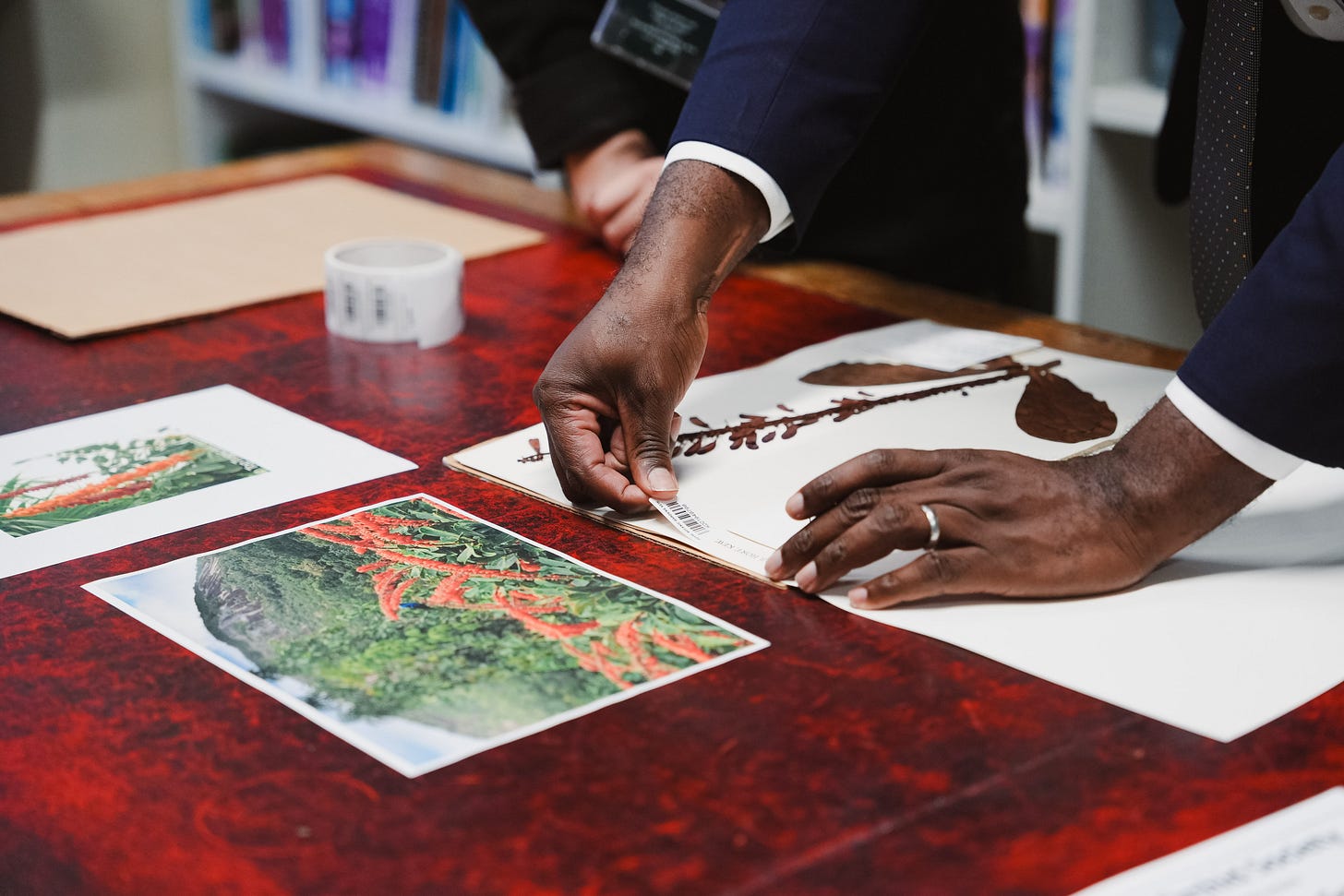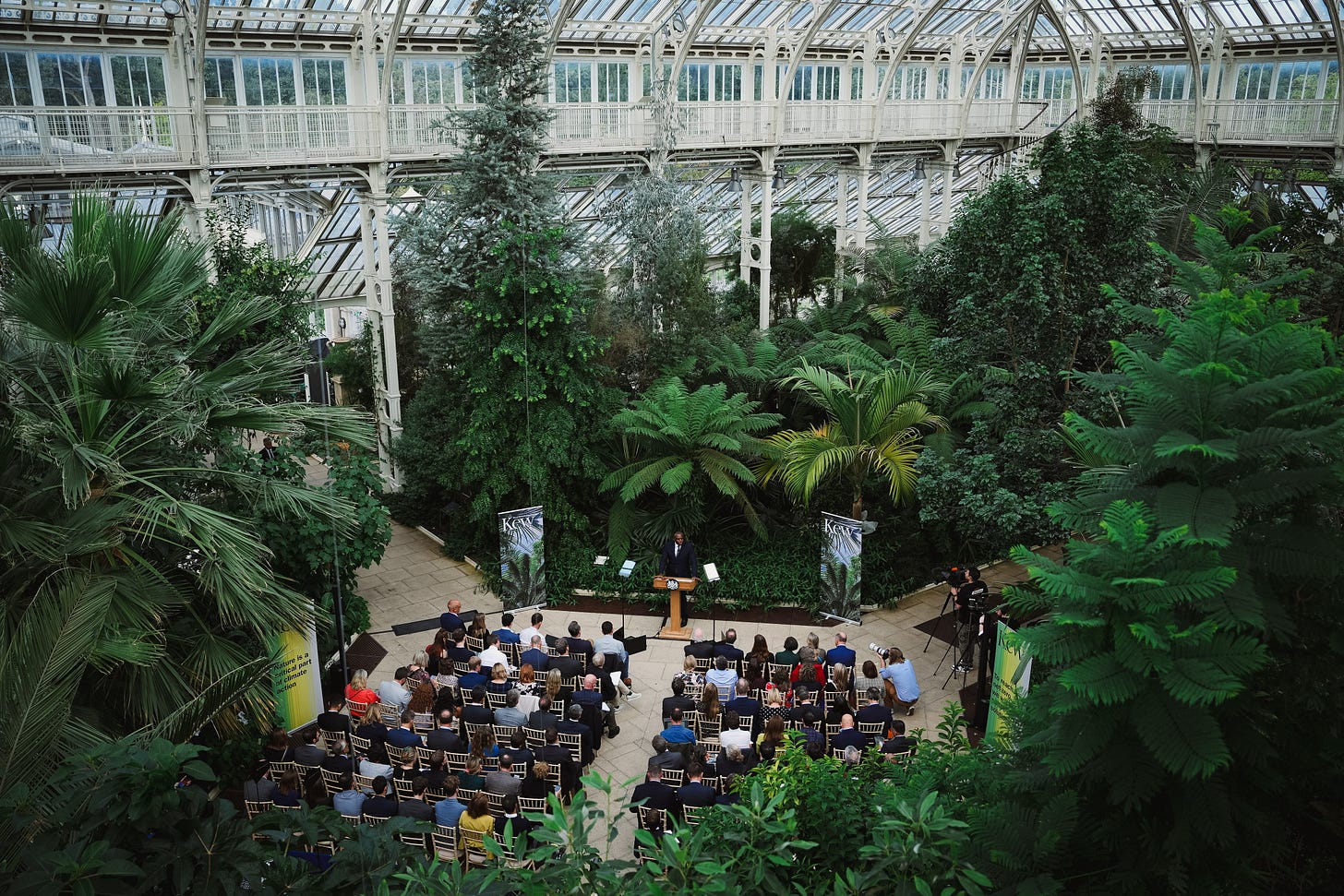The Kew lecture
Putting the climate and nature emergency at the centre of UK foreign policy
This week, I returned to the beautiful Kew Gardens, to deliver my first set piece speech as Foreign Secretary.
As I said to the audience, my father took me there as a young boy. Standing amidst the awesome trees in Temperate House, it struck me how he brought me there to be in touch somehow with the rainforests of his home, Guyana.
My father came to Britain from Guyana in 1956. That was the same year that Sir David Attenborough published his first book, Zoo Quest to Guyana. Last week, I had had the privilege of meeting Sir David, and hearing his reminiscences of his own work in the Guyanese rainforest. We spoke about the work of my own conservation project, Sophia Point, which my wife and I founded in Guyana five years ago, in one of the last unspoilt biodiversity hotspots in the world.
Sir David and I firmly share the conviction that we have both an interest and a responsibility to maintain a liveable planet for ourselves and future generations. My speech set out my commitment to that goal.
But it also went further. One of my great frustrations in the climate and nature debate is that it is an issue that gets treated in isolation. Siloed off from other bits of politics.
This is wrong. The climate and nature crisis cannot be divorced from the realities of foreign policy. Across the world, we are seeing how this issue has become a source of geopolitical competition. The worsening impact of the crisis is exacerbating this, fuelling conflicts and displacing communities, while the race for critical minerals intensifies. At the same time, the Net Zero transition offers unparalleled economic opportunities, at home and abroad.
At the same time, it is the most vulnerable who bear the brunt of rising temperatures and falling biodiversity. It is inherently progressive to take action in response.
That’s why climate and nature was the subject of my first major speech in this job – we have a progressive goal, but need to be realistic about how best to achieve it.
Central to a realist approach is taking seriously the position of others. We need consensus – that is the whole premise of the COP process.
Fundamentally, there will be no long-term geopolitical stability without climate stability. And no long-term climate stability without a more equal partnership between the Global North and the Global South. None of us can tackle this crisis alone.
So when countries in the Global South express frustrations at their lack of access to international climate finance or development programmes that exclude indigenous people and local communities, it is in our interest to take this seriously.
Some countries are moving ahead in the energy transition, but many are getting left behind. Through a new Global Clean Power Alliance, we will accelerate the rollout of clean power across the globe, just as we are doing here at home in the UK. The Alliance will include countries at the vanguard of clean energy ambition, working together to overcome the key barriers to delivery.
My speech is only a first step in proving Britain’s renewed commitment on this issue. Next week, I will be in New York for the UN General Assembly High-Level Week and attend the Summit of the Future. My focus will be making a sustained effort to address the climate and nature crisis through genuine partnerships based on mutual respect. Doing so is vital – for our future security and prosperity, and the future of the planet.
You can read my full speech or watch it being delivered from Kew. Do share your thoughts. I do not have time to respond to them each in person, but it is incredibly helpful to know what others think of our work to reconnect Britain with the world.






David, I hate to break it to you, but giving money to third world countries so they can buy a few Chinese solar panels isn't good foreign policy.
Partly right but misguided. UK Foreign Policy should have two main prongs - climate on one hand, but international development on the other, with the latter taking precedence. The UK is uniquely placed to gain influence and promote Africa and the Commonwealth on the world stage - focusing too hard on climate risks sounding out of touch and sanctimonious (the world does not need another EU). Priority should be given to giving a voice and promotion of Commonwealth member interests on the world stage, which should be done in close conjunction with Canada, Australia and New Zealand, and with broader backing from India and the US. Let climate be a secondary pillar pursued with Northern European countries (Dutch, Nordics, Baltics), but do not centre UK foreign policy around this or you will be squandering the UK’s cultural strengths and relative altruism on the world stage.